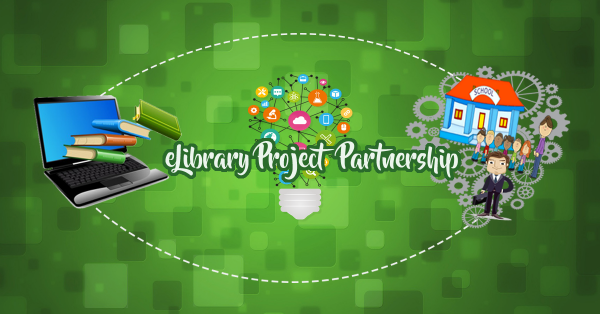
When you hear the word "eLibrary", what comes to mind? Computers, internet, books? Materials stored electronically? All of the above. And more! An eLibrary is an amazing creation that enables you to do research and save time going to a real library and browsing a mountain of books.
An eLibrary is not meant to replace "real" physical libraries. But for schools, teachers, and students in remote areas, however, an electronic library can possibly be the only access to a comprehensive collection of learning materials. Rural schools may not even have enough "real" physical books, to begin with. Here moodLearning and project partners like Tambayayong Mainit, Inc. (TMI) answer to the call of providing such platform, especially in places where the internet is spotty or non-existent. Learning resources could be donated by sponsors and other project partners. Focused on K-12 and secondary education, the eLibrary project is meant to be a support system for less-privileged schools.
The Project is by no means a dole-out. It is a people-centric undertaking of the eLibrary Project Partnership, a collaboration between the school and the eLibrary Project champions (Project Sponsors, Technology Providers, and Partner Schools). The primary goal of this partnership is to enhance the entire education experience of students and teachers. Providing the technology and hardware for the eLibrary System to the school is just secondary to the partnership for an engaging, responsive education.
The Project Sponsors provide the necessary hardware for the deployment of the eLibrary System. They have to supply the server, for a school that already has a local area network (LAN), some workstations, and a wifi access point (WAP). They also have to spend for the transportation and accommodation of the Technology Providers.
The setup of the eLibrary System at the school and the pre-deployment preparations are done by the Technology Providers. Tech providers need to collaborate with local institutions with people capable of supporting the project technically. Additionally, they must be able to provide training for the school's faculty on the use of the eLibrary System and to demonstrate how the eLibrary might be integrated into every facet of learning at the school.
With the eLibrary System, less-privileged schools can have a better teaching and learning experience. All they need to do is integrate the eLibrary System into their curricular and extra-curricular activities. Just let teachers be teachers; students, students! In rural areas, the eLibrary is the next best thing to a full endowement of educational resources. But without the Partnership, the eLibrary is just another infrastructure project.
For more details on the eLibrary program, contact moodLearning or partner orgs like TMI.
